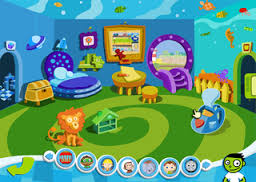 Literacy is important in all areas of learning. Being able to read and write accurately, to listen carefully and to talk clearly about ideas will increase the opportunities for young people in all aspects of life and will allow them to participate fully in learning and later in a work environment.
Literacy is important in all areas of learning. Being able to read and write accurately, to listen carefully and to talk clearly about ideas will increase the opportunities for young people in all aspects of life and will allow them to participate fully in learning and later in a work environment.
Parents play a crucial role in helping children to develop literacy skills from an early age. They contribute to this by reading to their children every day, learning nursery rhymes together and using normal events in life to help children learn about the world around them, for example by pointing out signs. Parents can contribute further to their children’s learning by encouraging children to talk about their thoughts and ideas, and about how they are feeling. Parents can encourage children to explore literacy outside the classroom.
Young people will enjoy reading different types of texts and all reading helps them to develop their skills. So whether they are reading a book, a blog, a magazine or a sports report, it will help if parents are encouraging and supportive.
This website has lots of ideas and links through to other websites to help parents and carers support their children with literacy at home.









